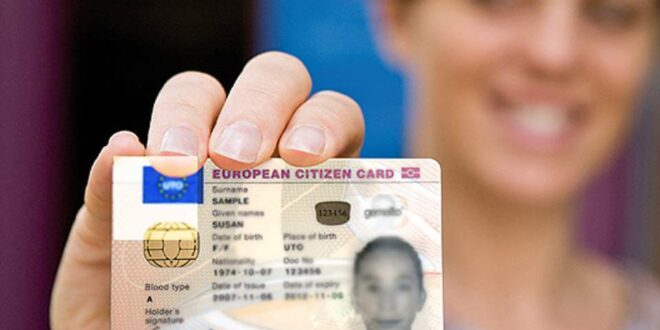Europe is a beautiful continent full of culture, history, and amazing sites. Many people dream of living permanently in Europe, but few know how to make it happen. Luckily, many ways to obtain European residence can be tailored to your individual needs and dreams. In this article, we’ll discuss 8 interesting ways you can get residence in Europe: obtaining an EU Blue Card through employment; getting married or entering into a partnership with an EU citizen; setting up a business venture; finding seasonal employment; participating in exchange programs; investing in property or another asset; claiming residency through ancestry or birthright citizenship; and applying for asylum. Whether you’re looking for permanent residence or just want the opportunity to stay for a shorter period, these options can help you experience the beauty of Europe.
1. Setting Up a Business Venture

Are you looking for a way to get residence in Europe? Setting up a business venture is an interesting option that may help you gain long-term residency and even citizenship in the European Union. With the Portugal Golden Visa in 2024, individuals can benefit from the attractive incentives offered by Portugal for setting up a business and investing in this popular tourist destination.
This program provides numerous benefits for those who are interested in establishing their businesses or investing in one. Portugal has joined many other European countries by offering a path to permanent residency by forming an innovative startup, commercial enterprise, or investment. This allows entrepreneurs from all around the world to gain access to Portugal’s excellent infrastructure and supportive environment. Portugal even provides tax incentives and other benefits to foreign entrepreneurs setting up shops in the country.
2. Obtaining an EU Blue Card Through Employment

The EU Blue Card offers a great opportunity for those seeking to reside in Europe. This card allows skilled professionals outside the European Union to immigrate and work within the EU, granting them legal residence status. The card gives its holders access to some of the same rights as citizens of an EU member state, such as access to public healthcare, education systems and other services. In addition, it also grants freedom of movement across all 26 Schengen countries.
Obtaining an EU Blue Card Through Employment is an interesting way to get residence in Europe because this type of immigration does not require applicants to know the language or culture before arrival. Furthermore, this route can be much faster than other forms of immigration, as applicants may be able to obtain the card in just a few months.
Another benefit of obtaining a card through employment is that it generally requires fewer documents than other forms of immigration. The process usually involves submitting only an employer’s contract and residence permit application and proof of financial stability such as a bank statement or income tax return. Additionally, many countries have streamlined their regulations for this type of immigration, making it easier for people to apply.
3. Finding Seasonal Employment

For a few reasons, seasonal employment is an interesting way to get residence in Europe. First, it’s often available all year round, so you can take on different roles throughout the seasons. This means you can gain experience in different fields and apply for more permanent positions when opportunities arise. You also can move around from country to country, expanding your network of contacts and potential job prospects.
In addition, working seasonally allows you to explore other EU countries and their cultures while still earning money. It provides a great way to travel without worrying about finding a place to stay or saving up funds before departing; since it’s paid work, you’re guaranteed a salary each month.
Finding seasonal employment also offers the chance to learn new skills and build relationships. You can take on different roles that require training, such as teaching English or working in a hotel. This will allow you to develop your knowledge and make valuable contacts across Europe.
4. Getting Married or Entering Into a Partnership With an EU Citizen

The main advantage of getting married or entering into a partnership with an EU citizen is that it gives you access to the same rights and obligations as any other EU citizen. This includes the right to reside in any of the 27 Member States of the European Union, to receive unemployment benefits, and to travel freely within the Schengen area without needing a visa. It also allows you to bring family members if they are eligible under EU law.
Furthermore, getting married or entering into a partnership with an EU citizen can be beneficial if you plan on working in Europe. You will have the same rights and protections as any other EU citizen regarding employment, including the right to equal pay for equal work. This also means that you will not need a work permit or residence permit to start a job in any of the Member States of the European Union.
Additionally, getting married or entering into a partnership with an EU citizen can provide you with financial stability and security. As spouses of EU citizens, you will be eligible for social security benefits such as health care, pensions, and unemployment benefits, depending on your partner’s country of residence. In some cases, you may even be able to apply for dual citizenship if you meet the requirements.
5. Participating in Exchange Programs
If you’re a student or recent graduate, several exchange programs in Europe can help you obtain temporary residence. Many of these programs allow participants to work alongside local businesses and experience different cultures while gaining valuable work experience. In most cases, applicants must be under 30 and have relevant qualifications or experience.
6. Investing in Property or Another Asset

If you demonstrate that you have sufficient financial resources to invest in a property or another asset, some European countries may grant you residence. This option is best suited for those looking for a long-term residence as it usually requires a significant investment. Depending on the country, requirements may include proof of funds and other documents such as tax and bank statements.
7. Claiming Residency Through Ancestry or Birthright Citizenship

If you can trace your ancestry back to a European country, you may be eligible for citizenship through birthright laws. This option is best suited for those who can prove they have a parent or grandparent born in the destination country. In some cases, applicants may also be eligible to apply for long-term residence through ancestral claims.
8. Applying for Humanitarian Residence
If you are facing persecution in your home country or cannot return due to an emergency, you may be able to obtain humanitarian residence in Europe. To qualify, applicants must provide evidence of their circumstances and demonstrate that they will face danger if they were to return home. Depending on the country, asylum seekers may also be eligible to apply for long-term residence after spending a certain amount of time in the destination country.
Overall, there are several ways to obtain residence in Europe, depending on your circumstances and future plans. Suppose you think any of the above options may be suitable for you. In that case, it’s important to research the specific requirements of each country and consult with a legal professional or immigration specialist.
 Imagup General Magazine 2024
Imagup General Magazine 2024



